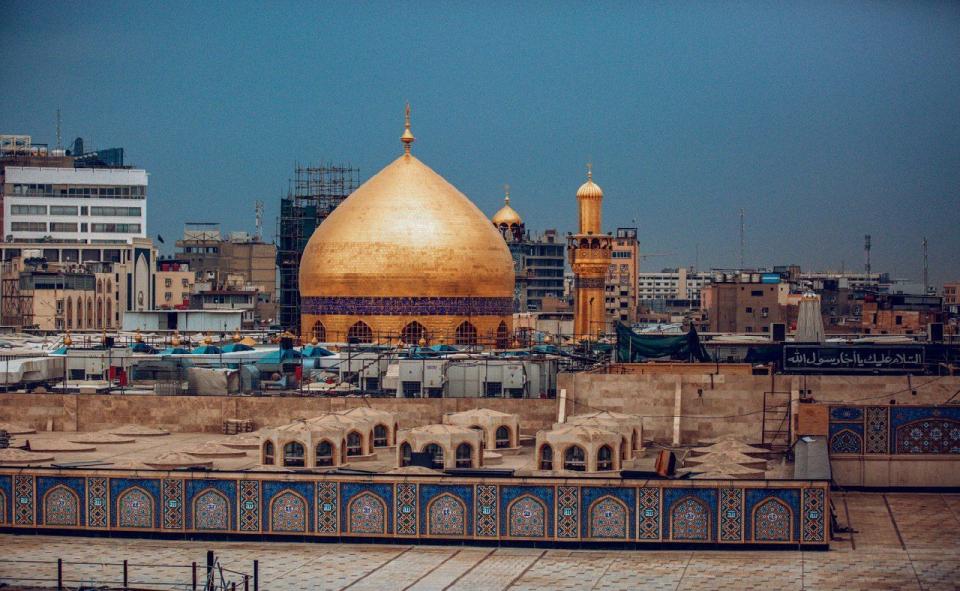Nouri Sardar
11th September 2018
Ba’ath Rule
Karbala saw some of its darkest days under the rule of the Ba’ath party and Saddam Hussein. The extreme secularist movement excluded Shia Muslims from senior positions in government and led repressive measures against Shia institutions, eventually executing leading figures in the seminaries and expelling Iraqi Shias to Iran. Commemorations of Ashura were banned, with those seen to commemorate openly risking imprisonment and execution. Spies in the city reported anyone who remotely criticised the republic. Many fled the country or were imprisoned, tortured, or killed.
A revolt against the regime took place in Southern Iraq in 1991, with Karbala for a short period of no more than 2 weeks enjoying autonomy. Flyers were dropped by American planes calling for Iraqis to rise up against Saddam. Saddam’s forces crushed the Karbala revolt brutally in 1991, desecrating the shrines and killing all who sought refuge in them. The shrine of Imam Hussain was also shelled with mortar fire. Some bullet holes still remain today, kept there as a reminder of what happened.
Thereafter, the regime was especially harsh on Karbala. After the United Nations imposed sanctions on Iraq, Karbala suffered disproportionately.

